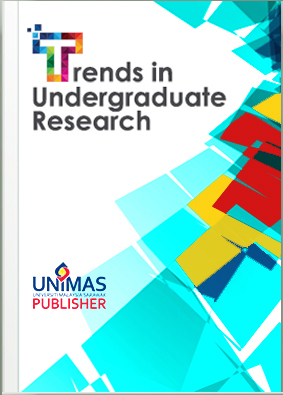Auto Timetable Management Mobile Application
DOI:
https://doi.org/10.33736/tur.5730.2023Keywords:
timetable management, mobile application, priority levels, automaticAbstract
In this fast-paced lifestyle, we play multiple roles and bear different responsibilities. This kind of lifestyle needs proper time management skills to look after the tasks and duties that have been entrusted. In order to do time management effectively, tools such as timetables are commonly adopted. Rescheduling of a timeslot in a timetable could happen due to certain unforeseen events that require immediate action. The rearrangement of one timeslot could possibly affect another timeslot in a timetable, essentially, it needs extra time and effort to draw new planning. In this paper, we proposed to develop an auto timetable scheduling mobile application to combat the hustle of manual timetable management. By assigning priority levels and constraints such as the preferred time and date of a task, the proposed application can reschedule and generate a new timetable automatically. With the proposed application, we claim that users can reduce the hustle of creating and managing their timetables in a manual way.
References
Al-Azam, S.A.A., Omar, S.S.B., Al-Ghaili, M.A.A. (2018). The Effectiveness of Time Management and Work Performance at Telecommunications subcon Companies in Malaysia – Case Study (Multi-Wireless SDN.BHD). Journal for Studies in Management and Planning, 4(13). https://www.researchgate.net/publication/338983803_THE_EFFECTIVENESS_OF_TIME_MANAGEMENT_AND_WORK_PERFORMANCE_AT_TELECOMMUNICATIONS_SUBCON_COMPANIES_IN_MALAYSIA-CASE_STUDY_MULTI-WIRELESS_SDNBHD
Chu, S.C., Chen, Y.T., Ho, J.H. (2006). Timetable Scheduling Using Particle Swarm Optimization. First International Conference on Innovative Computing, Information and Control - Volume I (ICICIC'06), Beijing, China. https://ieeexplore.ieee.org/document/1692180
Claessens, B.J.C., van Eerde, W., Rutte, C.G., & Roe, R.A. (2007). A review of the time management literature. Personnel Review, 36(2). https://doi.org/10.1108/00483480710726136
Digite. “What is Agile Methodology? – Overview Of Agile Software Development And Agile Models”. Access on January 2021. https://www.digite.com/agile/agile-methodology/
Dudek, W. (2011). Constraint Priorities - a Way of Getting an Optimal Timetable Fully Automatically. Three Steps into the Modern Timetable Scheduler. ICAPS 2011, Freiburg, Germany. http://citeseerx.ist.psu.edu/viewdoc/download?doi=10.1.1.297.4488&rep=rep1&type=pdf#page=18
Feng G.Q., Xu P., Cui, D.L., Dai. X.W., Liu. H., & Zhang. Q. (2021) Multi-stage timetable rescheduling for high-speed railways: a dynamic programming approach with adaptive state generation. Complex & Intelligent Systems, 7(6), 1407–1428. https://doi.org/10.1007/s40747-021-00272-6
Lakein, A. (1973). How to Get Control of your Time and Life. New York, NY: Nal Penguin Inc.
McCay, J. (1959). The Management of Time. Englewood Cliffs, NJ: Prentice Hall.
Nasrullah, S., Khan, M.S. (2015). The Impact of Time Management on the Students' Academic Achievements. Journal of Literature, Languages and Linguistics, 11(8). https://iopscience.iop.org/article/10.1088/1742-6596/995/1/012042
Oulasvirta, A., Dayama, N.R., Shiripour M., John, M., & Karrenbauer, A. (2020). Combination Optimization of Graphical User Interface Designs. Proceedings of the IEEE, 108(3). https://ieeexplore.ieee.org/abstract/document/9000519
Sainz, M.A., Ferrero, A.M. (2019). Time Management: Skills to Learn and Put into Practice. Education and Training, 61(5). https://www.emerald.com/insight/content/doi/10.1108/ET-01-2018-0027/full/html
Downloads
Published
How to Cite
Issue
Section
License
Copyright Transfer Statement for Journal
1) In signing this statement, the author(s) grant UNIMAS Publisher an exclusive license to publish their original research papers. The author(s) also grant UNIMAS Publisher permission to reproduce, recreate, translate, extract or summarize, and to distribute and display in any forms, formats, and media. The author(s) can reuse their papers in their future printed work without first requiring permission from UNIMAS Publisher, provided that the author(s) acknowledge and reference publication in the Journal.
2) For open access articles, the author(s) agree that their articles published under UNIMAS Publisher are distributed under the terms of the CC-BY-NC-SA (Creative Commons Attribution-Non Commercial-Share Alike 4.0 International License) which permits unrestricted use, distribution, and reproduction in any medium, for non-commercial purposes, provided the original work of the author(s) is properly cited.
3) For subscription articles, the author(s) agree that UNIMAS Publisher holds copyright, or an exclusive license to publish. Readers or users may view, download, print, and copy the content, for academic purposes, subject to the following conditions of use: (a) any reuse of materials is subject to permission from UNIMAS Publisher; (b) archived materials may only be used for academic research; (c) archived materials may not be used for commercial purposes, which include but not limited to monetary compensation by means of sale, resale, license, transfer of copyright, loan, etc.; and (d) archived materials may not be re-published in any part, either in print or online.
4) The author(s) is/are responsible to ensure his or her or their submitted work is original and does not infringe any existing copyright, trademark, patent, statutory right, or propriety right of others. Corresponding author(s) has (have) obtained permission from all co-authors prior to submission to the journal. Upon submission of the manuscript, the author(s) agree that no similar work has been or will be submitted or published elsewhere in any language. If submitted manuscript includes materials from others, the authors have obtained the permission from the copyright owners.
5) In signing this statement, the author(s) declare(s) that the researches in which they have conducted are in compliance with the current laws of the respective country and UNIMAS Journal Publication Ethics Policy. Any experimentation or research involving human or the use of animal samples must obtain approval from Human or Animal Ethics Committee in their respective institutions. The author(s) agree and understand that UNIMAS Publisher is not responsible for any compensational claims or failure caused by the author(s) in fulfilling the above-mentioned requirements. The author(s) must accept the responsibility for releasing their materials upon request by Chief Editor or UNIMAS Publisher.
6) The author(s) should have participated sufficiently in the work and ensured the appropriateness of the content of the article. The author(s) should also agree that he or she has no commercial attachments (e.g. patent or license arrangement, equity interest, consultancies, etc.) that might pose any conflict of interest with the submitted manuscript. The author(s) also agree to make any relevant materials and data available upon request by the editor or UNIMAS Publisher.

